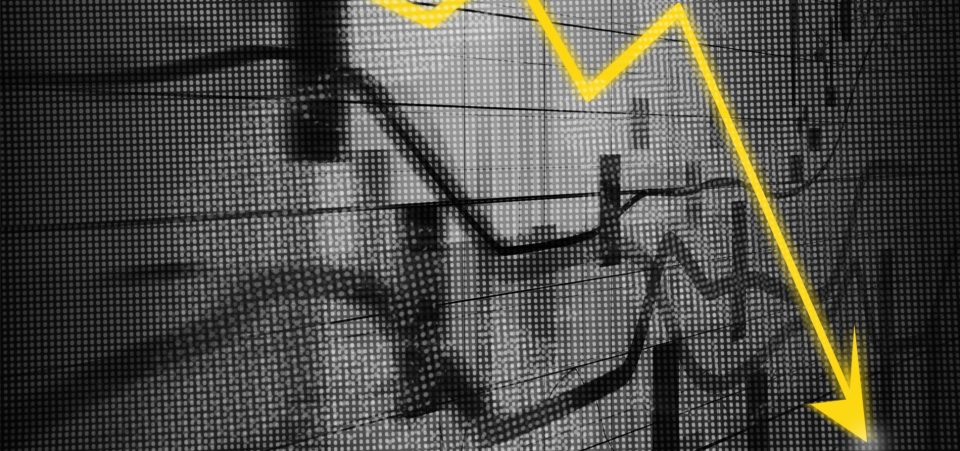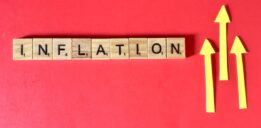Defense Sector Sell-Off Warns That a Stock Market Crash Is Coming
Many young Americans—anyone who has recently started or even finished college in the United States—can’t even remember when a stock market crash affected them (directly, anyway). That’s because the last major crash technically started in late 2007 and ended in June 2009.
In 2019, it will have been a decade of constant economic expansion. While history often fails, it does point to a staggering statistic.
In the period from 1900 to the present, the United States has experienced at least one major market crash every 10 years. Therefore, in historical terms, a major stock market crash is due.
What history has gotten right is that there has never been such a thing as an ever-expanding economy. That kind of phenomenon doesn’t even exist in the fantasies of the most bullish economists.
Rather, for every period of growth, there exists a (usually shorter) period of decline. This decline is marked by a drop in the gross domestic product (GDP) and socio-economic hardship due to lower production, lower demand for goods and services, and higher unemployment.
Not surprisingly, the lower corporate earnings also put pressure on the value of stocks.
In the present case, the trigger of the next stock market crash could be too much debt and higher interest rates.
These Will Burst the Current Speculative Bubble
Academics and pundits have not identified a guaranteed way to determine the precise moment when a recession-causing stock market crash begins. However, it doesn’t take a Nobel Prize-winning genius to figure out that Wall Street is on shaky grounds now.
That may startle many, including myself. It seems illogical to expect doom and gloom when the indicators for the U.S. economy point to a solid and bullish trend.
In the past, the current type of market, bullish though it may seem, has often served as a catalyst for a major type of crash, correction, and recession.
And what type of market is that? It’s one characterized by rising rates, high levels of government and private debt, and exuberant stock valuations. In the background, a trade war is brewing amid global political instability.
The Tax Cut Effect Has an Expiry Date
The tax cuts worked in 2018. But their buoyant effect will end in 2019.
The other mark of a coming storm in the financial markets is unusual behavior. And investors have shown decidedly odd behavior when it comes to the defense sector.
The defense sector has reported outstanding quarterly results. Yet, rather than being celebrated with a rally, these generally unassailable companies have been among the top losers in the recent stock market crash.
Before examining some of the odd moves the market has made in the last days of October 2018, there are plenty of reasons to expect a major stock market crash and a recession.
Indeed, investors have ignored the likes of Lockheed Martin Corporation (NYSE:LMT), Boeing Co (NYSE:BA), or Raytheon Company (NYSE:RTN), which posted bullish earnings on all fronts (including guidance). This suggests that investors are either confused or vulnerable to increasing volatility.
I think they’re a quite a bit of both, which means that investors are starting to fear a stock market crash.
The Defense Sector Can Serve as a Gauge of Investor Sentiment
The current drops—Lockheed Martin lost over six percent in a single session after posting a record third quarter, beating both earnings and revenue expectations—can only have one culprit: the midterm elections.
After episodes involving the gruesome assassination of a prominent journalist at the Saudi Consulate in Istanbul; the mail bomber Cesar Sayoc Jr., who targeted leading Democrats; and another mass shooting, there is a sense the Democrats could win one or even both Houses of Congress.
Most governments suspect, even if behind closed doors, that the main suspect for the Saudi Consulate murder is Saudi Crown Prince and de-facto ruler, Mohammad bin Salman, aka MBS.
He happens to have toured Lockheed Martin Corporation in 2017 and signed a memorandum of understanding (MOU) to buy some $100.0 billion worth of armaments from the U.S.—most of which come from Lockheed Martin—with options up to $350.0 billion.
Defense Spending Is All That’s Left of Bipartisan Politics in Washington
Without Republican backing, according to this logic, defense spending would suffer.
Investors, therefore, fear that Democrat majorities would suppress defense-sector margins and scrap contracts domestically and internationally (especially with Saudi Arabia, the world’s top weapon importer).
The implication is that Democrats are somehow bad for defense spending.
That implication is wrong.
Perhaps Democrats are only slightly less inclined toward spending on weapons than Republicans. Yet, it was President Barack Obama who caused relations with Russia to deteriorate to Cold War levels. And it was also under Obama that the Middle East blew up and China started to flex its muscle in its neighborhood.
But neither the U.S. government (regardless of political affiliation) nor its allies is going to surrender defense spending in the stormy Cold War environment.
Defense Sales Will Continue
As for Saudi Arabia, many governments have toyed with the idea of halting defense sales to the Saudis.
Still, if something is to be done about Saudi Arabia, the U.S. and its allies will exercise the right amount of pressure to replace the current de-facto ruler with a more amenable one.
Or at least one who won’t send hit squads to Saudi consulates.
In the worst-case scenario, Congress would ban weapon sales to Saudis (which is what Germany has announced). The U.S. government would only do so after finding new markets for those same contracts.
Saudi Arabia’s regional rivals and allies, from Turkey to Qatar and the U.A.E., would be only too happy to buy.
And then there’s Iran. President Trump has ditched the Iran Deal, the Joint Comprehensive Plan of Action (JCPOA), which allowed Boeing to sign a tentative $30.0-billion deal to sell airliners to Iranian airlines.
With a less stable Saudi Arabia, Trump could change his mind and renegotiate that deal. He suggested as much already, and serious scholars have already been working out when a new deal might appear. (Source: “How Trump Can Get a Better Deal on Iran,” Foreign Policy, October 10, 2018.)
Even Justin Can Appreciate the Value of a Good Arms Deal
But will it even come to that?
As a hint, not even Justin “uber SJW” Trudeau, lover of all things peaceful and politically correct, has considered cutting a $12.0-billion arms deal with the Saudis over the allegations concerning MBS. (Source: “Why is Saudi Arabia still getting Canadian-made weapons?,” Macleans, October 28, 2018.)
Of course, the defense stocks may have fallen because of good old fashioned profit taking, as the overall market seems to be under pressure. Some keen observers might object, “Why has Tesla Inc (NASDAQ:TSLA) stock gone up so strongly then?”
Tesla, whose fundamentals have feet of clay at best, may have gained because of a “short-squeeze” after a well-known Tesla shorter decided to go long on dubious thinking. (Source: “Major Tesla Short Seller Switches To Long, Cites 4 CleanTechnica Charts,” CleanTechnica, October 23, 2018.)
Yet, despite a moderate profit and the hype about the “Model 3” enjoying big sales, Tesla still sits on some $10.0 billion of debt. And far from being in the clear, Tesla could still fail. (Source: “Tesla’s Big Quarterly Profit Suggests A Major Turning Point To Some Investors,” Forbes, October 27, 2018.)
Tesla, which has enjoyed an almost monopoly-like market, will suddenly face an onslaught of massive competition in 2019 and beyond. Mercedes Benz, Audi, BMW, Porsche, and others will launch luxury electric vehicles of their own.
Interest Rates Will Drive Investors Away From Equities
Macro issues such as higher interest rates are going to affect all major purchases involving borrowing.
Tesla cars are not cheap. The irony is that Tesla may increase prices as it sells more cars.
But buyers won’t benefit from a $7,500 government subsidy after the company sells over 200,000 cars. Subsidies will be halved in 2019 and phased out in 2020. (Source: “Tesla loses US subsidies as it hits 200,000 sales mark,” The Telegraph, July 12, 2018.)
No economy expands continuously.
At present, many investors are selling value, choosing to bet on speculative alternatives instead. This suggests that the next major stock market crash is imminent.






